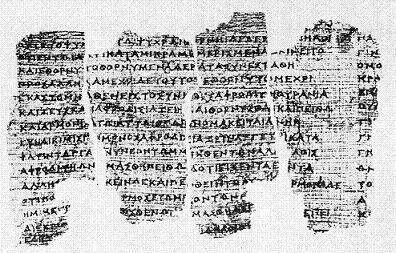Hi everybody,
I recall an underlined linguistic passage where the etymology of term 'Macedonia' was matched up with a Sanskrit word 'mahata'. If I am not mistaken it was brought up by TrueMacedonian, but I've not been able to find it so far...
If anyone has any idea about the passage I am speaking of, please share it here?!
Thnx
I recall an underlined linguistic passage where the etymology of term 'Macedonia' was matched up with a Sanskrit word 'mahata'. If I am not mistaken it was brought up by TrueMacedonian, but I've not been able to find it so far...
If anyone has any idea about the passage I am speaking of, please share it here?!
Thnx




Comment